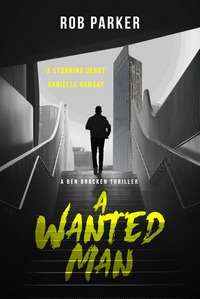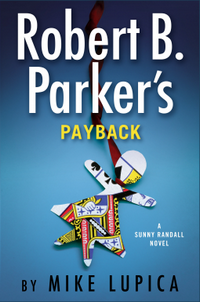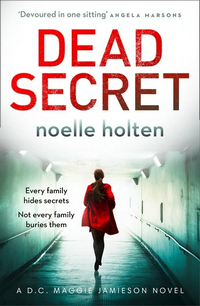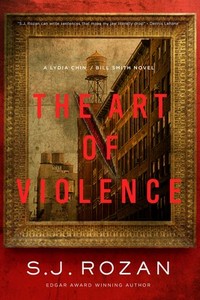
… he said, “Aren’t you going to tell me I’m not the serial killer type?”
“I don’t know that.”
“I guess in some weird way that’s a compliment.”
“It’s not. Why did you come here, Sam? Anyone else, I might think he was trying to impress me, but not you.”
“I’m not the type?” A sly smile.
“I hope you didn’t come for help leaving town, laying low, something like that. If you killed those women, you know I’m going to have to turn you in.”
“Good luck.”
“I have the guns,” I reminded him.
“You won’t need them but they won’t help. I already tried it.”
“Tried what?”
“Turning myself in. The detective told me to get lost. She said I wasn’t the type.
What’s The Art of Violence About?
Five years ago, Sam Tabor was sentenced to prison following a homicide. Bill Smith worked for Sam’s lawyer during the case, and was convinced Sam should’ve been put in a treatment center instead of prison—but Sam refused.
Now that he’s been “discovered” as an important artist, several agents and arts worked to get him released from prison. That happened a few weeks ago, and now two women have been killed. Sam’s convinced that he’s the killer, although he doesn’t remember killing these women—or even encountering them. He hires BIll to prove that he did commit the murders, so he can be sent back to prison for life where he can’t hurt anyone. Bill’s skeptical (as is the investigating detective) about Sam’s guilt, but takes the case so he can make sure Sam’s treated right and that his fears are investigated correctly.
So instead of looking for evidence to exonerate Sam, Bill’s looking for things to implicate him (technically, Bill’s still looking for ways to exonerate him, too). This is a very strange reason to hire a PI, and I loved this premise.
PI/Client Relations
Most people in Sam’s life treat him as two things—a murderer with psychological issues and an artistic genius (with shades of a cash cow). His brother and sister-in-law see him as a burden/obligation as well as a murderer with psychological issues. The police are looking for an excuse to lock him up again, hopefully for forever this time.
Bill Smith (and later, Lydia), on the other hand, treats him as a person. He doesn’t dance around Sam’s past, but Bill has always figured he’d paid a dearer price for that than warranted. He doesn’t want Sam to be railroaded by a vengeful detective or his own guilt. He certainly has no ideas about taking advantage of Sam’s wealth, status, or fame. He simply wants to find out what happened to these women.
In this light, Bill reminded me of Elvis Cole with Peter Alan Nelsen and Spenser with the various sports stars he’s worked for or Jill Joyce. They’re clients first and foremost, people who deserve to be treated right—and being celebrities is so far down the list of things they care about, that it almost doesn’t matter. Bill stands in good company there, and something about that way of dealing with a VIP has always appealed to me.
The Role of Art
Lydia and Bill find themselves involved in a crime involving the art world yet again, I can’t think of another detective that spends as much time in this world as these two. Typically, novels focusing on artists, galleries, and so on don’t do much for me. But the way this pair brushes up against this world, not only do I not mind, I find it appealing. I can see why Rozan or other authors find this world appealing.
One of Sam’s few friends in this particular case is a photographer. As hard as it is to give the flavor or an impression of a painting in prose, it seems more difficult to capture a photograph (aside from saying “it was a photo of X”), and Rozan doesn’t spend a lot of time describing individual photographs but she does a great job on the subject and tone of them, instead. I’m pretty glad that there were no pictures included I’m not sure I could’ve taken it (the novel’s title gives a hint about the direction of the photos). A picture may be worth a thousand words, but Rozan doesn’t need that many to get the reader to have the reaction she needs.
By now, it was half past eight. Traffic choked the streets, and pedestrians wove complex patterns on the sidewalks. All traces of last night’s mist had burned away under the April sun. The slanting whiteness of the light, the thin freshness of the day, dazzled me.
Lydia’s suggested any number of times that I consider changing my ways, getting up earlier, taking this in more often. She thinks it’s laziness and old habs that keep me from it. But she’s wrong. This unsullied light, this bright vision, they’re beautiful, but they’re false. They paint over the truth. They promise something they can’t deliver. It’s not until the day gets older, wearier, that it stops making the effort to lie.
The Subtle Slow Burn
Rozan says so little about the non-P. I. relationship between Bill and Lydia, and yet says so much. It’s been clear how Bill has felt about Lydia since the first book in the series, but it’s been a little harder to read Lydia. And Rozan hasn’t been as forthcoming as other mystery novelists when it comes to that sort of thing—and by other, I mean “every other one I can think of.” The Lydia/Bill romance arc is definitely a “less is more” kind of thing. Which is pretty much how Lydia would prefer it, I think.
I’d really prefer that she was less circumspect about it, but I really appreciate her approach to it. Which seems like a contradiction, but it’s not. If I were calling the shots, we’d get a lot more detail about what’s going on between them—and how long that’s been the case. That said, the way that Rozan plays with the audience’s desires/expectations, and instead just gives the reader hints, winks, and nudges work so well. Not just because it is so clearly what Lydia would like and leaves it all to the reader to piece things together. Yet, there have been developments in the relationship and we learn a lot about it (at least by Ronzan’s standards) in this book.
Yet again, the angel on my right shoulder told me to call Grimaldi, and the guy on the other side said I’d get more accomplished on my own. The right-side guy wanted to know if this was about getting things accomplished, or if it was personal. The left-side guy told him to guess.
So, what did I think about The Art of Violence?
The fact that this is the thirteenth book in the series that I’ve read, you probably have a pretty good idea of what I was thinking going in—I fully expected to like this one and I did.
First off, it’s from Bill’s perspective this time, and those usually feel a little different, and we get different details reported than we would have were the shoe on the other foot. I always enjoy the bouncing back and forth between the two narrators. Particularly if the police are involved, Bill has a strange relationship with the police, and it’s always good to see.
There’s a good puzzle to chew on here*, while watching Bill make a nuisance of himself with the people in Sam’s life who are convinced they’re far too good to deal with a P.I. Lydia’s around to smooth things over a bit, but not enough. It’s a dynamic I don’t imagine I’ll get tired of seeing. The (too few) scenes where it’s just Bill and Lydia talking to each other, are again, the highlight of the novel—I’ve said it before, I’ll say it again I don’t care what these two are talking about I’ll gladly read it. The Art of Violence would make a good jumping-on point to this series (almost all of them would be, come to think of it).
* Okay, I pegged the guilty party pretty early on, but not all the whys and hows involved. This is about the journey Bill and Lydia take to get the answers, more than it is the puzzle. Either way, the book scored pretty high on those).
These are characters you like to see in action, with a client who’s more interesting than most of those in a P.I. novel. you get a couple of good surprises out of Lydia’s mom, too. There’s really a lot to commend this book, as is to be expected from this series. You should give it a try.


This post contains an affiliate link. If you purchase from it, I will get a small commission at no additional cost to you. As always, opinions are my own.

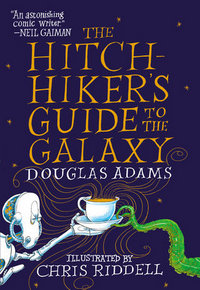
 As soon as I picked up this book this weekend, I just knew that I had to talk about it today on Towel Day. And then I sat down to write about this—and I’m not really sure what to say. Anyone who’s read this site much knows how bad I am at describing art. But, what else am I going to talk about today?
As soon as I picked up this book this weekend, I just knew that I had to talk about it today on Towel Day. And then I sat down to write about this—and I’m not really sure what to say. Anyone who’s read this site much knows how bad I am at describing art. But, what else am I going to talk about today?![]()




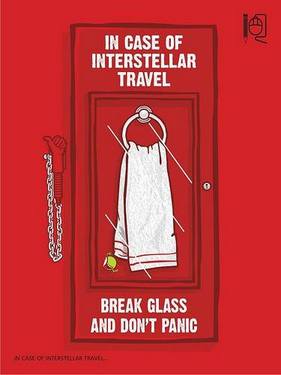



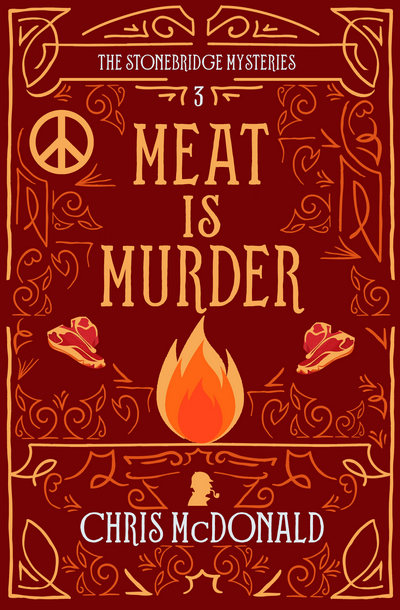
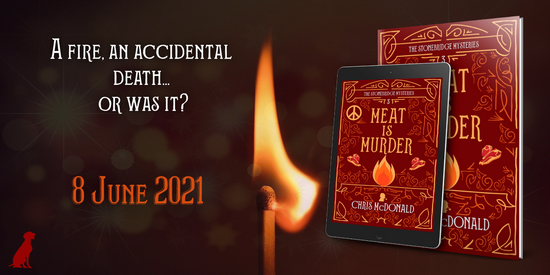

 Grab a book, any book.
Grab a book, any book.